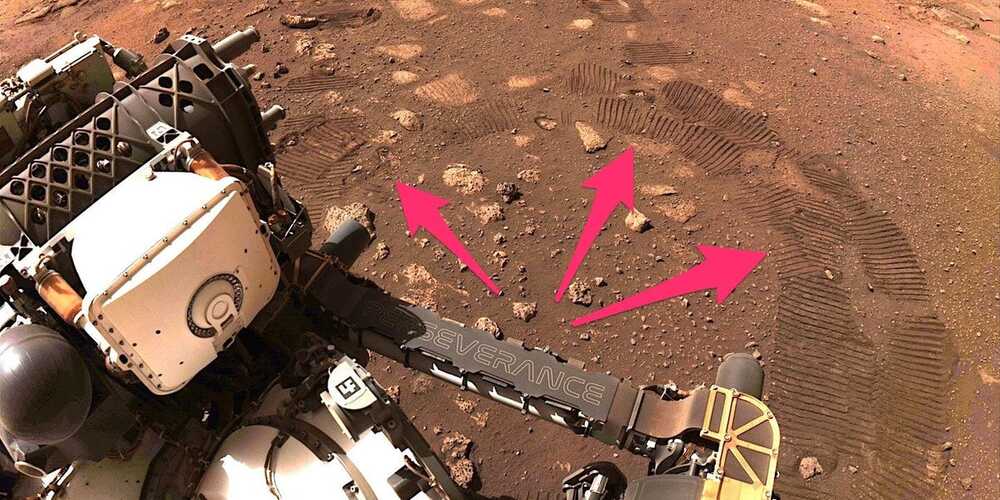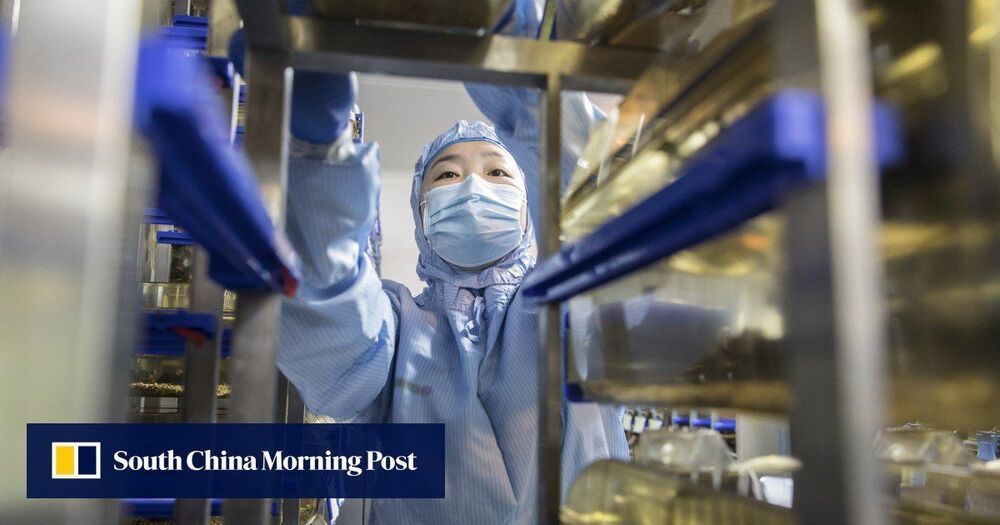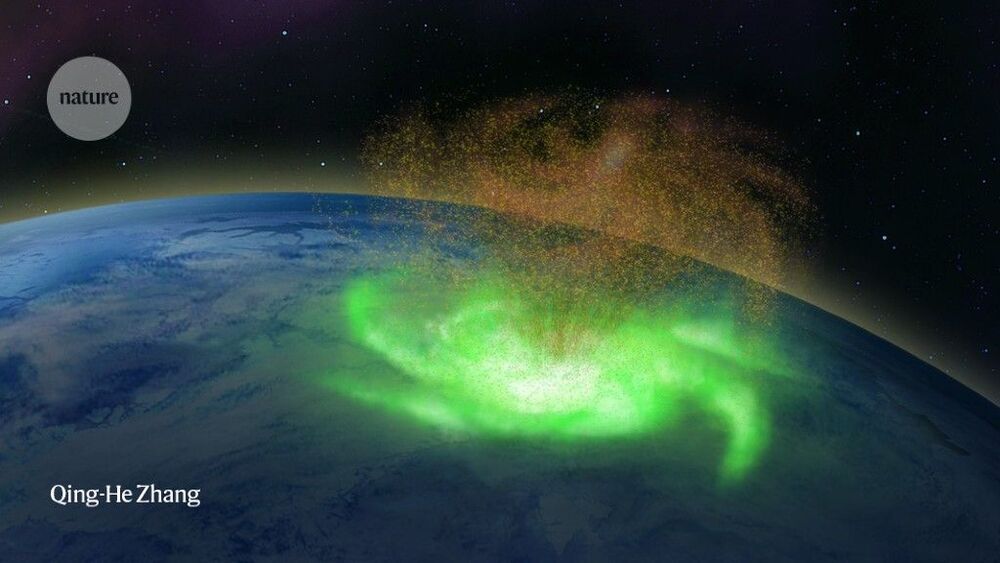Perseverance’s six-wheel drive leaves quite an imprint in its path. Those wheels are ready to carry the rover over an ancient river delta.



The Partei für Gesundheitsforschung (German Party for Health Research) demands, that the state should invest about 5 billion Euro per year additionally into biomedical research to hasten the development of effective medicine against the diseases of old age.
Here is our election program in German: https://parteifuergesundheitsforschung.de/wahlprogramm-der-p…erttemberg.
Please also consider donating money to the party, so that we can participate in more future elections. To participate in this years federal election in 12 states we would need e.g. at least about 50.000 Euro and unfortunately the party has almost no money at the moment. Election campaigns are a very good way to do advocacy for our cause and we can reach a lot of people this way, that we otherwise wouldn’t reach. Donating details: https://parteifuergesundheitsforschung.de/donate.


Integrated circuits, brain sciences, genetics and biotechnology, clinical medicine and health care, and deep Earth, sea, space and polar exploration were named as the other five sectors that will be given priority in terms of funding and resources, according to a draft of the government’s 14th five-year plan for 2021–25, and its vision through 2035.
‘Basic research is the wellspring of scientific and technological innovation, so we’ll boost spending in this area by a considerable sum,’ Premier Li Keqiang says.
The Spiral of the Southern Pinwheel The Dark Energy Camera (DECam), which was originally designed for the Dark Energy Survey, has captured one of the deepest images ever taken of Messier 83, a spiral galaxy playfully known as the Southern Pinwheel. Built by the US Department of Energy, DECam is mounted on the Víctor M. Blanco 4-meter Telescope at the Cerro Tololo Inter-American Observatory (CTIO), a Program of NSF’s NOIRLab.

SpaceX has launched another batch of its Starlink satellites — the usual complement of 60 of the low Earth orbit spacecraft, which will join the more than 1000 already making up the existing constellation. This is the fifth launch of Starlink satellites for SpaceX this year, and the twentieth overall.
Earlier this year, SpaceX opened up Starlink access to anyone in a current or planned service area via a pre-order reservation system with a refundable up-front deposit. The company aims to continue launches like this one apace throughout 2021 in order to get the constellation to the point where it can serve customers over a much larger portion of the globe. SpaceX COO and President Gwynne Shotwell has previously said that the company expects it should have coverage over much of the globe at a constellation size of around 1200 satellites, but the company has plans to launch more than 30000 to fully build out its network capacity and speed.
While SpaceX is making good progress on Starlink with its Falcon 9 launcher, it’s also looking ahead to Starship as a key driver of the constellation’s growth. Starship, SpaceX’s next-generation launch vehicle currently under development in South Texas, will be able to deliver to orbit 400 Starlink satellites at a time, and it’s also being designed with full reusability and fast turnaround in mind.

After his PhD thesis invalidates an old assumption, Norman Cao wonders what’s next.
“What are some challenges in controlling plasma and what are your solutions? What is the most effective type of fusion device? What are some difficulties in sustaining fusion conditions? What are some obstacles to receiving fusion funding?”
For the past four years, graduate student Norman Cao ’15 PhD ’20 has been the Plasma Science and Fusion Center’s (PSFC’s) go-to “answer man,” replying to questions like these emailed by students and members of the general public interested in getting a deeper understanding of fusion and its potential as a future energy source.

Satellite observations have revealed an unprecedented ‘space hurricane’ in Earth’s upper atmosphere, hinting that such events could occur on other planetary bodies.
Scientists have previously documented hurricanes in the lower atmospheres of Mars, Jupiter and Saturn. Similar phenomena have even been spotted on the Sun. But the existence of space hurricanes — hurricane-like circulation patterns in planets’ upper atmospheres — has been uncertain.
Earth’s upper atmosphere cooks up a storm.

NEW: A microchip carrying more than 27,000 Civil Air Patrol names with related messages and images is set to be carried to the moon later this year aboard space robotics company Astrobotic’s Peregrine lunar lander. https://www.cap.news/next-stop-the-moon-for-27000-cap-names/

 A microchip carrying more than 27000 Civil Air Patrol names with related messages and images is set to be carried to the moon later this year aboard space robotics company Astrobotic’s Peregrine lunar lander.
A microchip carrying more than 27000 Civil Air Patrol names with related messages and images is set to be carried to the moon later this year aboard space robotics company Astrobotic’s Peregrine lunar lander.
